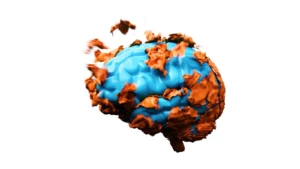
The ABCD of Silent AI Issues – 4 Opportunities in Disguise
As we continue to navigate the rapidly evolving landscape of artificial intelligence (AI), it’s essential to acknowledge the silent issues that lurk beneath the surface. These unspoken challenges pose significant threats to our autonomy, social cohesion, environmental commitments, and global equity. In this article, we’ll delve into the ABCD framework for proactive engagement, highlighting four opportunities disguised within these pressing concerns.
**A – Agency Decay**
The first issue is agency decay, where AI systems can erode our ability to make informed decisions. This occurs when AI-driven recommendations or suggestions sway our opinions without allowing us to critically evaluate the information presented. To combat this, we must stay vigilant and use AI intentionally, adjusting settings whenever possible and cross-checking suggestions to maintain control over our decision-making processes.
**B – Bond Erosion**
The second challenge is bond erosion, where AI amplifies echo chambers and reduces face-to-face interactions. This exacerbates polarization, as people become increasingly isolated within their own social circles. To combat this, it’s crucial to prioritize real-life connections by balancing digital activities with in-person conversations. We must also broaden our perspectives by following diverse viewpoints and engaging in authentic discussions.
**C – Climate Change**
Climate change is the third silent issue, where AI can either perpetuate or mitigate the crisis. On one hand, AI can contribute to increased energy consumption and environmental degradation. However, it can also be harnessed for sustainable solutions such as environmental monitoring, clean energy optimization, and resource management.
**D – Divided Society**
Lastly, there is a divide between those with access to the internet (2.6 billion people in 2024) and those without (estimated 2.8 billion people in 2023). This digital gap widens socio-economic disparities and stifles global progress. It’s essential that we work towards bridging this chasm by advocating for policies and initiatives that provide internet access to the billions still offline.
In conclusion, AI is reshaping modern civilization, presenting a complex web of challenges that require immediate attention. By acknowledging these silent issues and proactively addressing them, we can create a more inclusive, sustainable, and equitable society.
**The Way Forward**
To turn these challenges into opportunities, we must combine our natural and artificial intelligence to drive positive change for people and the planet. As individuals, it’s crucial that we curate hybrid intelligence by staying informed about AI-driven developments and using them responsibly.
Source: www.forbes.com


